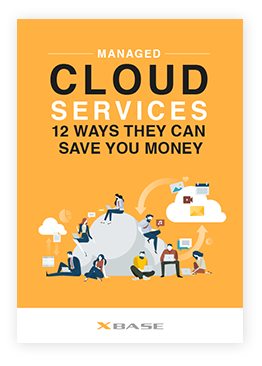To be clear, cloud computing is a boon for businesses in general. Just check out some of the benefits it provides below:
Cloud service providers (CSPs) have robust cybersecurity systems that fend off hackers. On top of these, clients can opt for additional layers of security, such as multifactor authentication (MFA), rights management systems, and encryption to prevent their data from being compromised.
The cloud also enables automatic backups and business continuity and disaster recovery processes to prevent damage that could be caused by data loss events. (As this article details, however, it’s very important to confirm with your cloud provider what services are included in your hosting — it can be dangerous to simply assume your data can and will be recovered).
Clients don’t have to invest in new hardware or software, nor do they have to hire IT staff to handle maintenance and repairs. CSPs spread such costs across many clients and are thereby able to provide the latter with affordable cloud service subscription rates.
Help desks are available 24/7/365 to address any and all cloud-related concerns. Furthermore, updates and upgrades are handled in the background so that clients’ businesses suffer zero disruptions.
Data storage and processing requirements may spike or drop sharply for reasons such as seasonal sales shifts, growth spurts, or economic recessions. CSPs enable businesses to adjust quickly by scaling resources accordingly. Additionally, firms can benefit from pay-as-you-go payment models for cloud services they only use occasionally.
Download our free eBook!
Get a better idea of what managed cloud services can do for your business by reading our eBook: Managed Cloud Services: 12 Ways They Can Save You Money.
Let’s dive into accounting specifically
Accounting departments and firms in particular have compelling reasons to migrate to the cloud:
Cloud computing allows you and your staff to access accounting data and applications wherever there is an internet connection.
Electronic transactions update ledgers in real time, and your staff can integrate accounting-related tools into your cloud to augment your systems. For instance, your employees can use receipt reader mobile apps and devices to digitize paper receipts and keep a close eye on your expenses.
Thanks to shared cloud platforms, remote accountants — i.e., those who work for an accounting firm and visit the client’s site — simply connect to the internet to access shared files. When they’re there, they don’t have to worry about their client’s firewalls or internal network monitoring systems. And since file edits are accomplished in real time, they don’t have to synch data back at their home office, too. In this way, the firm’s partners can monitor, track, and collaborate with staff, no matter how dispersed they may be.
Furthermore, both the accounting firm and its client can avoid ending up with multiple files that contain roughly the same information. On a cloud platform, file sharing and collaboration happens in real time, eliminating unnecessary data redundancy, the risk of mismatched data, and much of the waiting that takes place in back-and-forth email correspondences.
Since clouds are centralized, so too are their access management systems. There are programs that set permissions by user, role, and/or department, as well as those that monitor and manage devices, be they on-premises or mobile.
With proper implementation, your CPAs, staff accountants, and financial directors can enjoy mobility and other great conveniences, but you can be certain that your data will remain in the right hands all the time.
Instead of financial data being siloed in separate departments, it can be consolidated and processed in a centralized fashion via the cloud so that you can track how your company is doing in real time. The cloud provides unparalleled transparency into accounting metrics such as earnings, cash flow, tax payments, etc., as well as offers immediate insights that help with decision-making.
With so many financial regulations cropping up everywhere, it’s becoming increasingly difficult to comply with them all. However, since the cloud enables secure data sharing, firms can enjoy regulatory and accounting solutions from third-party service providers such as Bloomberg Professional Services.
File sharing and collaboration is a breeze over the cloud, so keeping accounting tabs with clients, corporate partners, and vendors is quick and pain-free.
Manual accounting can be prone to human error such as duplicate entries, but some cloud-based accounting apps feature AI that can spot and correct mistakes in your financial records.
Accounting departments and firms have a lot to gain from cloud computing. To find out more about how your company in particular can benefit from the cloud, turn to XBASE Technologies Corporation. Consult with our experts to learn more about our Exponentially Better™ cloud services today.

